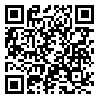BibTeX | RIS | EndNote | Medlars | ProCite | Reference Manager | RefWorks
Send citation to:
URL: http://sjsph.tums.ac.ir/article-1-101-en.html
Background and Aim: Self-efficacy and decisional balance in the Trans-theoretical Model play an effective role in oral self-care behavior. The objective of this study was to determine the impact of education on inter-dental cleaning behavior based on the Trans-theoretical Model in pre-universstudents in the city of Yazd, Iran in 2009.
Materials and Methods: This was an intervention study. Based on statistical calculations, 361 pre-university students (mean age 17.53±0.55 years) were randomly allocated into groups of intervention (n=185, 51.2%) and control (176, 48.8%). Data on demographic characteristics, self-efficacy, and decisional balancing (perceived benefits and perceived barriers) were collected using a questionnaire with confirmed validity and reliability. Based on the trans-theoretical model, a 3-month educational program was prepared with sections on self-efficacy and decisional balance and conducted. At the termination of the program variables of the model were evaluated and the gingival index was determined by a dentist. The data were analyzed using the SPSS software, the statistical tests being ANOVA, paired t-test, t-test, Fisher, and correlation coefficient.
Results: Implementation of the educational program resulted in a significant decrease in perceived barriers (p<0.001) and significant increases in perceived benefits (p<0.001) and self-efficacy (p<0.001). In addition, the gingival index improved in the intervention group (p=0.01). The final mean self-efficacy, perceived barriers, and gingival index were not significantly different between the case and control groups, but a significantly positive effect was noticed in perceived benefits (p=0. 01).
Conclusion: The findings indicate that the educational intervention influenced desirably the gingival index, self-efficacy and perceived benefits in the students. Since the self-efficacy factor is an important predictor in oral self-care behavior, it is suggested to use the trans-theoretical model in educational interventions aiming at improving self-efficacy, increasing perceived advantages, and reducing perceived obstacles.
Received: 2009/11/16 | Accepted: 2010/02/16 | Published: 2013/08/9
| Rights and permissions | |
 |
This work is licensed under a Creative Commons Attribution-NonCommercial 4.0 International License. |





